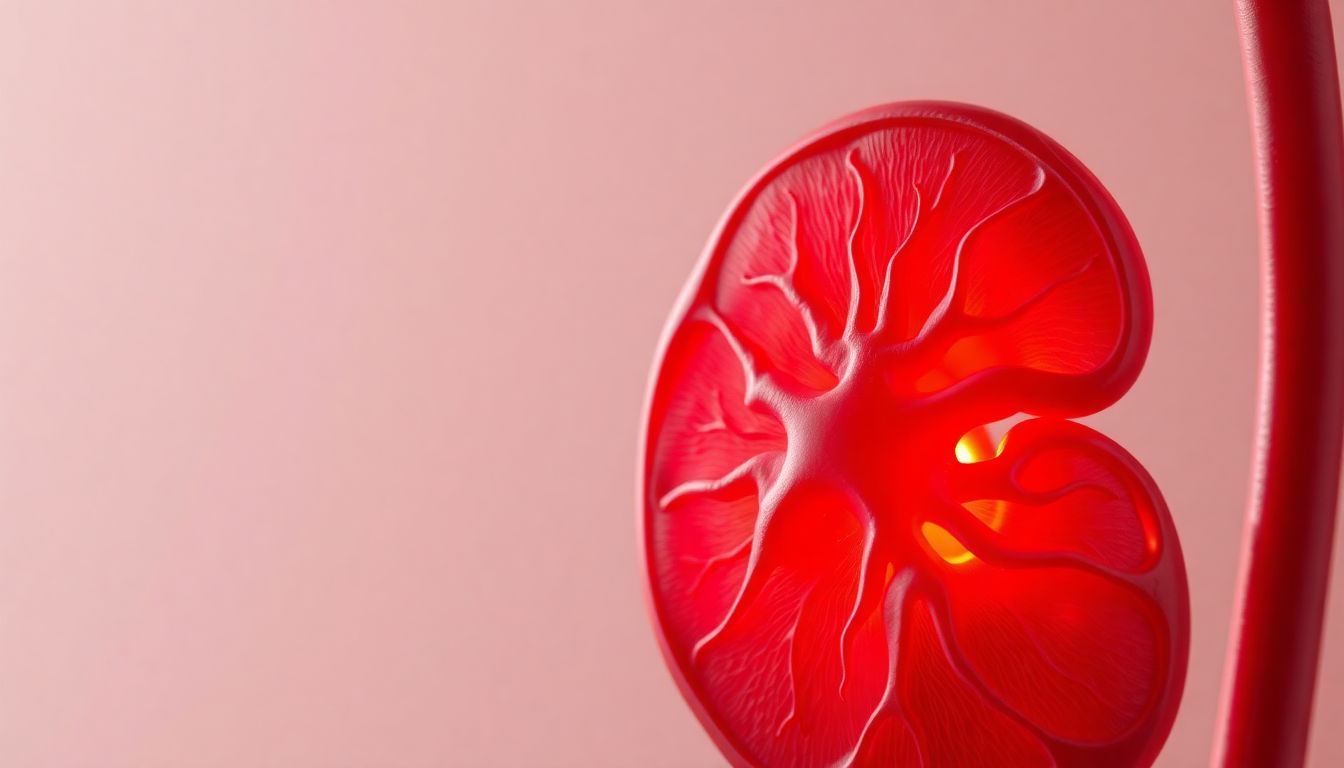Ways to Keep Your Kidneys Healthy

Healthy Kidneys: Your Guide to Optimal Kidney Function
Did you know that kidney disease affects about 37 million adults in the United States? This silent threat can seriously impact how long you live and how good your life is. But you can take charge of your kidney health! Your kidneys are vital for keeping you alive and well. These amazing organs work hard to filter waste, control blood pressure, and make hormones. This article gives you simple ways to keep your kidneys in great shape, naturally.
Hydration is Key: Water's Impact on Kidney Health
Water is like the ultimate kidney cleanser. If you’re not drinking enough, you can't keep your kidneys in top condition. Let's dive into why water is so crucial and how you can drink more of it!
Why Water Matters for Your Kidneys
Your kidneys act like filters in a water treatment plant. They need enough water to flush out waste and toxins. When you're dehydrated, waste can build up, potentially leading to kidney stones and other problems. Want to know if you’re drinking enough? Check the color of your urine. Aim for a pale yellow! Dark yellow means you need to drink more.
How Much Water Do You Need?
There's no one-size-fits-all answer. How much water you need depends on how active you are, what the weather is like, and if you have other health issues. A good starting point is eight 8-ounce glasses a day. If you're working out or it's hot outside, you'll need more. Carry a water bottle with you and refill it often. Set reminders on your phone to drink. Small changes can make a big difference.
Beyond Water: Hydrating Beverages
Plain water is great, but you can also hydrate with other drinks. Herbal teas, like chamomile or ginger, are good choices. Diluted juices can also help, but go easy on the sugary drinks. Too much sugar isn't good for your kidneys, or your overall health.
Diet and Your Kidneys: Fueling Optimal Function
What you eat has a huge impact on your kidneys. A few simple swaps in your diet can safeguard your kidneys. Let's look at the best ways to eat for kidney health.
Sodium: Striking the Right Balance
Too much salt can hurt your kidneys. High sodium levels can increase blood pressure, which puts a strain on your kidneys. Read food labels carefully. Many processed foods are loaded with sodium. Cook at home more often so you can control the amount of salt you use. Use herbs and spices to flavor your food instead of salt.
Protein: Avoiding Overload
Protein is essential, but too much can be tough on your kidneys. Your kidneys have to work harder to process protein. This is especially important if you already have kidney problems. Eat moderate portions of protein. Good sources include lean meats, poultry, fish, and beans.
The Power of Plant-Based Foods
Fruits, vegetables, and whole grains are your kidneys' best friends. Berries, apples, and leafy greens are packed with vitamins and antioxidants. They help protect your kidneys from damage. Whole grains like brown rice and oats provide fiber, which helps regulate blood sugar and blood pressure. Add a variety of these foods to your diet for optimal kidney health.
Lifestyle Choices for Kidney Protection
It's not just about what you eat and drink. Your overall lifestyle impacts your kidneys. These tips help you adopt habits that keep your kidneys strong.
Regular Exercise: Boosting Kidney Function
Exercise does more than just keep you fit. It improves blood flow, which helps your kidneys work better. Aim for at least 30 minutes of moderate exercise most days of the week. Walking, swimming, and cycling are all great choices. Find something you enjoy so you'll stick with it.
Managing Stress: Protecting Your Kidneys
Stress can harm your kidneys. Chronic stress can raise blood pressure, which can damage your kidneys over time. Find healthy ways to manage stress. Meditation, yoga, and spending time in nature can help. Make time for activities you enjoy.
Avoiding Harmful Substances: Protecting Your Filters
Smoking and too much alcohol are bad news for your kidneys. Smoking damages blood vessels, which reduces blood flow to the kidneys. Excessive alcohol consumption can also harm the kidneys. Quit smoking and limit your alcohol intake to protect your kidneys.
Medical Management and Monitoring
Sometimes, lifestyle changes aren't enough. Regular check-ups and managing existing health conditions are vital for kidney health. Here are steps to make sure your kidneys are in good shape.
Regular Check-ups: Early Detection is Key
See your doctor regularly for check-ups. Routine blood and urine tests can help detect kidney problems early. This is especially important if you have risk factors like diabetes or high blood pressure. Early detection can make a huge difference in treatment.
Managing Existing Conditions: Diabetes and Hypertension
Diabetes and high blood pressure are two leading causes of kidney disease. If you have these conditions, it's important to manage them effectively. Follow your doctor's recommendations for medication and lifestyle changes. Keeping your blood sugar and blood pressure under control will protect your kidneys.
Medications and Kidneys: Awareness is Crucial
Some medicines can harm your kidneys. Over-the-counter pain relievers like NSAIDs (ibuprofen, naproxen) can be especially harmful if taken regularly or in high doses. Talk to your doctor about any medicines you're taking, including over-the-counter drugs and supplements. They can help you find safer alternatives.